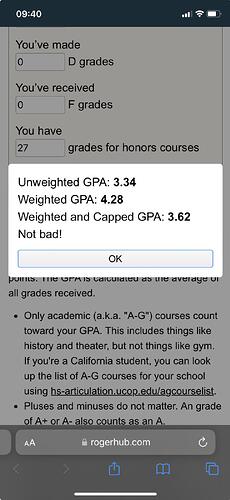OP, which part of California are you in? As tsbna said, schools in California aren’t automatically easier to visit. A quick trip to Salt Lake City or Las Vegas or Portland or Tempe is easy from almost any CA airport. Albuquerque might also be easy, or not as much, depending on where you’re coming from. Getting from one end of California to the other is no easier than traveling to/from adjacent states.
Re:
Of course it’s true that a student can get an undergrad math degree at almost any reputable college. But my understanding is that the OP sees her son as someone who truly needs a vibrant academic community around higher math. In a lot of CSU math programs, the majority of students are in math-education or applied math tracks, and a serious student of pure math would be an outlier.
Of course, it’s possible that as an outlier, he could be highly valued by faculty and find great mentoring, even at a school where he has few like-minded peers. I would suggest researching faculty at schools that interest him, and even making contact with professors who are doing work that he’d like to become involved in. Is he a kid who would be comfortable reaching out in this way? (It’s not something a parent can do for him.)
He may get in, but he won’t get WUE at either, so affordability is an issue. OSU full-pay non-resident COA is about 59K/year; they do give smaller merit awards to the non-WUE OOS students, but I don’t know if they’d be enough.
Portland State may be worth a closer look. It would be guaranteed-affordable with WUE - roughly $33K/year all-in. The math department offers multiple tracks, including one focused on grad school preparation. (There’s also an actuarial sciences track, if that career path would be of any interest.) The course offerings are robust, both in math and in Latin, and there’s extensive faculty research in which he could become involved. (The school also punches way above its weight in CS, and the access to CS for nonmajors is far better than at most CA publics, so that’s also worth considering if he’s interested in the computational side of things.) PSU is largely a commuter school, but there’s a really nice residential sub-community in the dorms, and some themed housing options for first-years including one focused on STEM. The university has more non-traditional students than most schools, but this contributes to an atmosphere where many students are clear on their goals and quite focused on them; he might like the vibe. (Plus, it’s the kind of school where you can find fun and easy classes to meet requirements in areas of relative non-interest.) Several of my daughter’s closest friends went here and really liked it; there are many very smart and motivated students who choose the school for financial and logistical reasons. Additionally, there are cross-registration opportunities at some very strong nearby schools, including Reed, which is a top-10 PhD feeder for math when the list is adjusted for school size. And flights to/from Portland are quick, plentiful, and cheap, from virtually anywhere in California. Finally, admissions here are rolling. So he can apply when the application opens in August, and have an acceptance before the application period for CA publics even opens. It can be incredibly reassuring to have that first acceptance nailed down early.
One more thought… would your son qualify for financial aid at needs-met schools? The one school on the PhD feeder list that might be accessible to him is St. Olaf in Minnesota (#10 on the size-adjusted feeder list). St. Olaf meets need, and has a median GPA of 3.72 and median SAT of 1380… I think he might have a chance via their holistic admissions process, and even more of a chance if he went all-in and submitted a binding early decision application. (Their ED acceptance rate is over 70%, much higher than RD.) You can run their Net Price Calculator to see whether he’d get enough aid to make it affordable. Additional points in favor of St. O: they have extensive coursework in Latin, and they have cross-registration with nearby Carleton College, which is also very strong in both math and Latin. Obviously it’s only worth considering if he’d get enough need-based aid, but if he would, I would give the possibility due consideration. (Of course it isn’t super easy to get to, but it’s 45 minutes from MSP which has tons of direct flights.)
